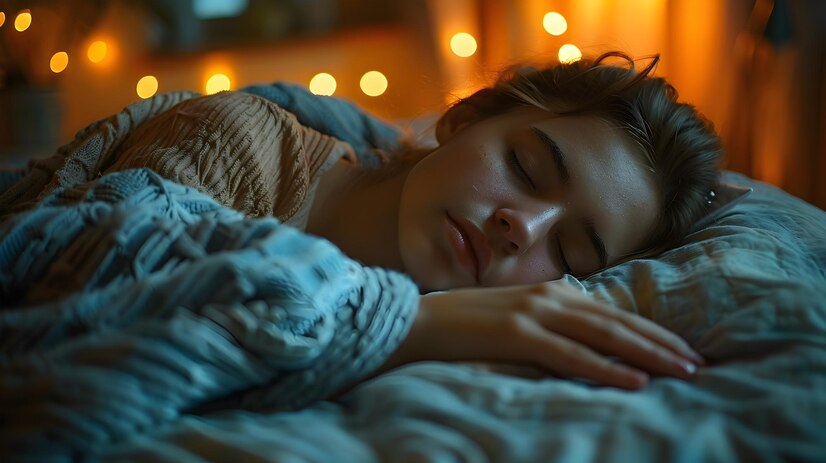Despite how critical sleep is to bodily and intellectual well-being, getting sufficient, excellent sleep each night could be challenging. You can experience the effects of inadequate sleep in every aspect of your life. The sleep behavior you comply with each day—called sleep hygiene—may have a fantastic impact on how well you sleep.
We look at how to sleep better with clean steps to enhance your sleep behavior. From evaluating your bedroom environment to optimizing your sleep agenda, our method to getting better sleep consists of precise moves that you could take to make it less complicated to go to sleep, stay asleep, and wake up feeling well rested.
You May Also Like: The Impact of Technology in Surgery: Revolutionizing Modern Medical Procedures
Invest in a Better Mattress and Bedding
A mattress that fits your needs and options ensures you are comfortable enough to loosen up. Investment in a supportive bed and pillow helps ensure your spine receives the proper support to avoid aches and pains. Your sheets and blankets are prime for making your mattress feel inviting. Choose bedding that is soft to the touch and will help keep your room at a pleasant temperature at night.
Block Out Light
Excess mild exposure can throw off your sleep and circadian rhythm. Blackout curtains over your windows or snooze masks over your eyes can block light and prevent it from interfering with your rest. Avoiding brilliant light lets you transition to bedtime and contributes to your frame’s production of melatonin, a hormone that promotes a better night.
Minimize Noise
Keeping noise to a minimum is crucial to constructing a sleep-pleasant bedroom. If you cannot take away nearby assets of noise, don’t forget to drown them out with a fan or white noise gadget. Earplugs or headphones are another choice to prevent sounds from bothering you when you need to rest.
Temperatures between 65 and 68 degrees Fahrenheit should be your goal.
You don’t want to feel very hot or cold in your bedroom, which could be distracting. Although the ideal temperature varies from person to person, most studies suggest sleeping in a more comfortable space between sixty-five and sixty-eight degrees.
Get at Least Seven Hours of Sleep
If you want to get the recommended amount of sleep every night, you should build that into your schedule. Considering your constant wake-up time, paint backward and pick out a target bedtime that allows for at least seven hours.
Every day, set your alarm clock for the same time.
Your body will never be able to adjust to a healthy sleep schedule if you wake up at different times every day. Despite the temptation to sleep in on weekends and other days, set a wake-up time and adhere to it.
Keep Naps Around 20 Minutes
To sleep better at night, it’s essential to use naps. You risk disrupting your sleep routine and finding it more difficult to fall asleep when necessary if you take too many naps during the day. The excellent time to nap is rapidly after lunch in the early afternoon, and the significant nap period is around 20 minutes.
Relax for 30 Minutes Before Bed
It is much simpler to doze off if you are at ease. Quiet studying, low-impact stretching, paying attention to soothing music, and playing physical games are methods to get into the proper frame of mind for sleep.
Disconnect Devices within the Hour Before Bed
Tablets, smartphones, and laptops can hold your brain stressed, making it challenging to, without a doubt, wind down. The mild from those electronic devices also can suppress your natural production of melatonin. As good a deal as feasible, try disconnecting for an hour or more before bed.
Make time for exercise every day—at least 20 minutes.
Daily workouts have many advantages for health; the changes they initiate in strength use and body temperature can lead to solid sleep. Most experts recommend a severe workout near bedtime because it can avoid your body’s potential to calm down before sleeping effectively.
Read More: Why Do I Sweat So Much When I Work Out?
Limit Caffeine After 2 p.m.
Caffeinated liquids, which include espresso, tea, and sodas, are some of the most famous liquids in the world. Some humans are tempted to use the jolt of electricity from caffeine to strive to triumph over sunlight hours of sleepiness, but that approach is not sustainable. It may motivate lengthy periods of sleep deprivation. To avoid this, keep an eye on your caffeine consumption and avoid it later in the day when it can be a barrier to falling asleep.
Know when to touch your healthcare issuer.
Nearly everyone has an occasional sleepless night. However, contact your healthcare company if you frequently need help drowsing. Identifying and treating any underlying reasons allows you to get the higher sleep you deserve.

